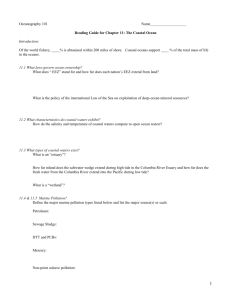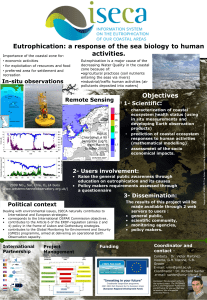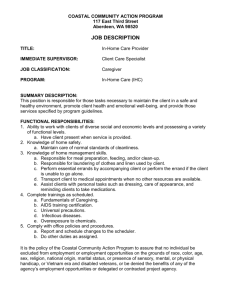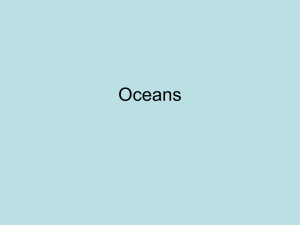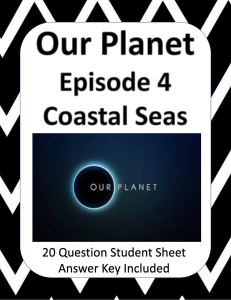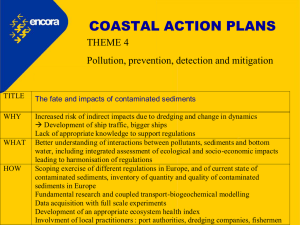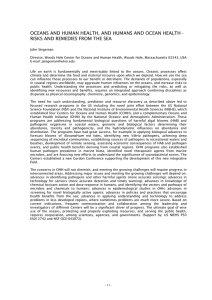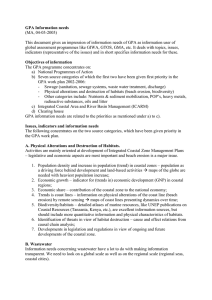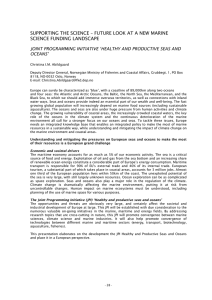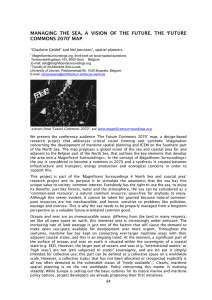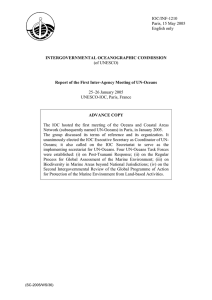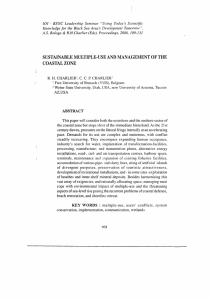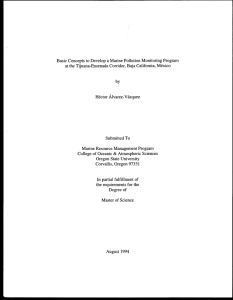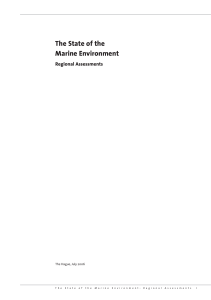Oceans and Human Health
advertisement
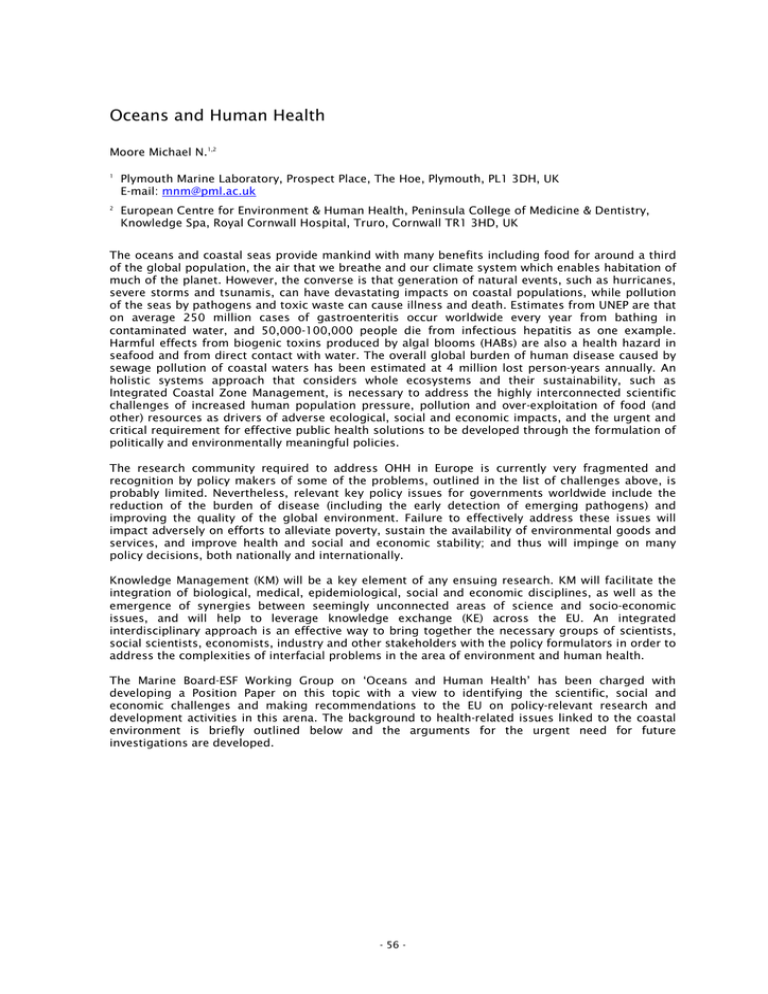
Oceans and Human Health Moore Michael N.1,2 1 Plymouth Marine Laboratory, Prospect Place, The Hoe, Plymouth, PL1 3DH, UK E-mail: mnm@pml.ac.uk 2 European Centre for Environment & Human Health, Peninsula College of Medicine & Dentistry, Knowledge Spa, Royal Cornwall Hospital, Truro, Cornwall TR1 3HD, UK The oceans and coastal seas provide mankind with many benefits including food for around a third of the global population, the air that we breathe and our climate system which enables habitation of much of the planet. However, the converse is that generation of natural events, such as hurricanes, severe storms and tsunamis, can have devastating impacts on coastal populations, while pollution of the seas by pathogens and toxic waste can cause illness and death. Estimates from UNEP are that on average 250 million cases of gastroenteritis occur worldwide every year from bathing in contaminated water, and 50,000-100,000 people die from infectious hepatitis as one example. Harmful effects from biogenic toxins produced by algal blooms (HABs) are also a health hazard in seafood and from direct contact with water. The overall global burden of human disease caused by sewage pollution of coastal waters has been estimated at 4 million lost person-years annually. An holistic systems approach that considers whole ecosystems and their sustainability, such as Integrated Coastal Zone Management, is necessary to address the highly interconnected scientific challenges of increased human population pressure, pollution and over-exploitation of food (and other) resources as drivers of adverse ecological, social and economic impacts, and the urgent and critical requirement for effective public health solutions to be developed through the formulation of politically and environmentally meaningful policies. The research community required to address OHH in Europe is currently very fragmented and recognition by policy makers of some of the problems, outlined in the list of challenges above, is probably limited. Nevertheless, relevant key policy issues for governments worldwide include the reduction of the burden of disease (including the early detection of emerging pathogens) and improving the quality of the global environment. Failure to effectively address these issues will impact adversely on efforts to alleviate poverty, sustain the availability of environmental goods and services, and improve health and social and economic stability; and thus will impinge on many policy decisions, both nationally and internationally. Knowledge Management (KM) will be a key element of any ensuing research. KM will facilitate the integration of biological, medical, epidemiological, social and economic disciplines, as well as the emergence of synergies between seemingly unconnected areas of science and socio-economic issues, and will help to leverage knowledge exchange (KE) across the EU. An integrated interdisciplinary approach is an effective way to bring together the necessary groups of scientists, social scientists, economists, industry and other stakeholders with the policy formulators in order to address the complexities of interfacial problems in the area of environment and human health. The Marine Board-ESF Working Group on ‘Oceans and Human Health’ has been charged with developing a Position Paper on this topic with a view to identifying the scientific, social and economic challenges and making recommendations to the EU on policy-relevant research and development activities in this arena. The background to health-related issues linked to the coastal environment is briefly outlined below and the arguments for the urgent need for future investigations are developed. - 56 -
